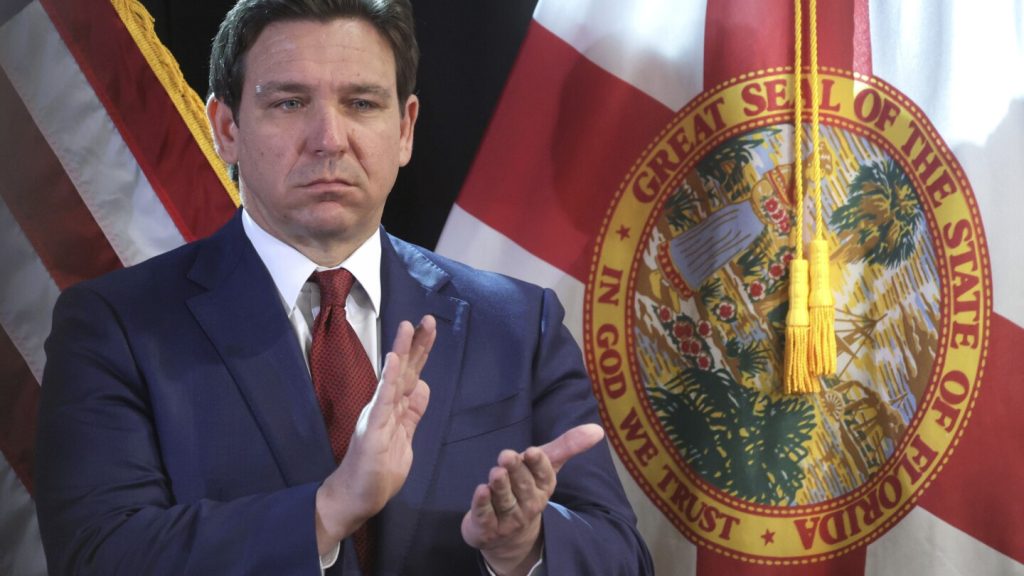Florida Gov. Ron DeSantis signed a bill on Monday that will implement one of the country’s most restrictive social media bans for minors, if it withstands expected legal challenges. The new law will ban social media accounts for children under 14 and require parental permission for 14- and 15-year-olds. This legislation was slightly altered from a previous proposal that DeSantis vetoed earlier in the year, with the new law set to take effect on January 1. The bill was a top priority for Republican Speaker Paul Renner, who highlighted the potential harm of addictive technologies on young minds.
The bill that DeSantis vetoed initially would have banned minors under 16 from popular social media platforms even with parental consent. However, a compromise was reached with Renner to address the governor’s concerns, resulting in a revised bill being sent to DeSantis for approval. While several states have considered similar legislation, a federal judge in Arkansas blocked enforcement of a law that required parental consent for minors to create new social media accounts. Supporters of the bill in Florida hope that it will remain intact despite legal challenges, as it aims to target social media formats with addictive features rather than specific content.
DeSantis acknowledged the likelihood of legal challenges on First Amendment grounds, given the recent striking down of the “Stop Woke Act” by a majority of Republican-appointed judges. While he expressed confidence in the constitutionality of the social media ban, opponents, including the Computer & Communications Industry Association, have raised concerns about potential violations of First Amendment rights for younger users. The bill received overwhelming support in both chambers, with some Democrats joining Republicans in favor. However, opponents argued that the legislation infringes on parental rights and suggested alternative approaches such as enhanced parental oversight tools and investment in mental health programs.
Despite criticism from some Democratic lawmakers, including Rep. Anna Eskamani, who argued that the bill goes too far in restricting parents’ rights, the legislation passed and was signed into law by Governor DeSantis. The ongoing debate over the balance between online safety for minors and constitutional rights sets the stage for potential legal battles as the law faces scrutiny and potential challenges. The implementation of the social media ban in Florida will be closely watched to determine its effectiveness in protecting young users and its implications for free speech rights in the digital age.


